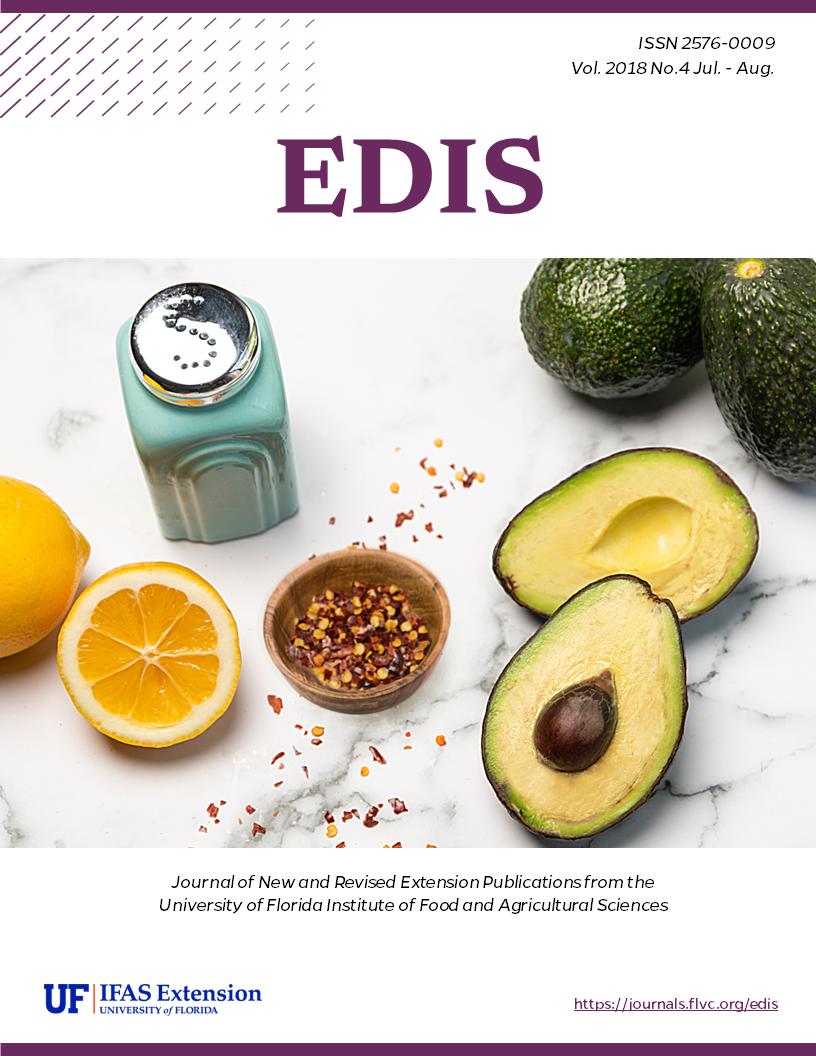Abstract
This document discusses the challenges of sexual self-incompatibility in citrus hybrids, which leads to low yields due to ineffective self-pollination. Cross-pollination with compatible cultivars is necessary for adequate fertilization and seed production. Effective pollination requires mixing compatible trees within a grove, ensuring good bee activity, and minimizing the use of harmful insecticides during bloom. Pollenizer trees should be no more than three trees away from those needing pollination. Additionally, synchronizing bloom periods and early fruit harvest from pollenizer trees help maintain consistent fruit production. Honeybees are essential for this process, and one colony per two acres is recommended.

This work is licensed under a Creative Commons Attribution-NonCommercial-NoDerivatives 4.0 International License.
Copyright (c) 2018 UF/IFAS

